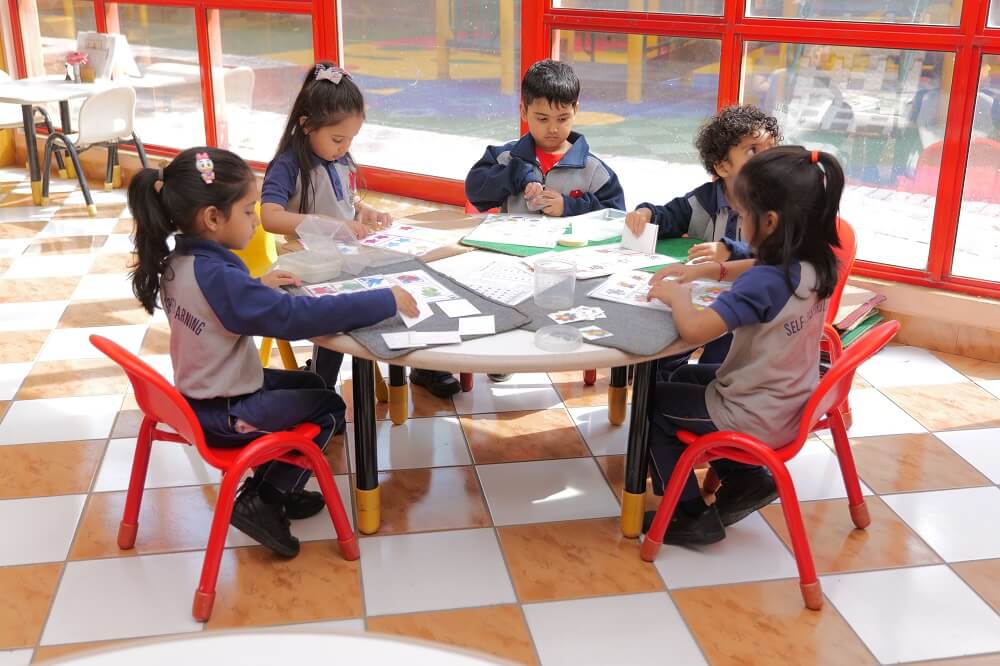Emotional intelligence is a crucial life skill that is often overlooked in traditional education. However, it plays a significant role in determining a child’s success in both personal and professional spheres. Emotional intelligence allows children to understand and regulate their emotions, communicate effectively, develop empathy, and build strong relationships. Therefore, it is important to nurture emotional intelligence in children from an early age. In this blog post, we will discuss some effective ways to nurture emotional intelligence in children, specifically at Excelsior American School is the best schools in gurgaon.
Model Emotional Intelligence: Children often learn by observing their parents, teachers, and other adults around them. Therefore, it is essential to model emotional intelligence in front of children. This means expressing emotions in a healthy and constructive manner, managing stress and anxiety, and showing empathy towards others. At Excelsior American School, teachers and staff can lead by example by regulating their emotions, practicing active listening, and showing respect for diversity.
Encourage Emotional Expression: Children need to feel safe and comfortable expressing their emotions. Encouraging emotional expression can help children develop self-awareness and empathy towards others. Excelsior American School can create a safe and supportive environment where children can share their emotions freely. Teachers and staff can encourage children to express their emotions through writing, drawing, or talking with peers or adults.
Teach Emotion Regulation: Emotion regulation is a crucial aspect of emotional intelligence. Children need to learn how to manage their emotions effectively to avoid impulsive behaviors and negative outcomes. At Excelsior American School, teachers can teach children various emotion regulation strategies such as deep breathing, visualization, positive self-talk, and mindfulness. These techniques can help children regulate their emotions, reduce stress, and improve focus.
Foster Empathy: Empathy is the ability to understand and share the feelings of others. It is a vital component of emotional intelligence that helps children build strong relationships with their peers and adults. At Excelsior American School, teachers can foster empathy by encouraging children to listen actively, asking open-ended questions, and acknowledging and validating their feelings. Teachers can also teach children to put themselves in other people’s shoes and consider different perspectives.
Provide Social-Emotional Learning: Social-emotional learning (SEL) is a process of developing emotional intelligence through structured activities and exercises. At Excelsior American School, teachers can provide SEL programs to children that focus on self-awareness, self-management, social awareness, relationship skills, and responsible decision-making. These programs can help children develop emotional intelligence in a fun and engaging way.
Encourage Positive Relationships: Positive relationships with peers and adults can significantly impact a child’s emotional intelligence. At Excelsior American School, teachers can encourage positive relationships by creating a supportive and collaborative learning environment. Teachers can facilitate group projects, team-building exercises, and other activities that require cooperation and communication among children. This can help children develop social skills, empathy, and conflict resolution abilities.
Celebrate Diversity: Celebrating diversity is essential in nurturing emotional intelligence in children. At Excelsior American School, teachers can create a curriculum that promotes diversity, equity, and inclusion. Teachers can also organize cultural events and celebrations that expose children to different cultures, traditions, and values. This can help children develop empathy towards people from different backgrounds and learn to appreciate and respect diversity.
In conclusion, emotional intelligence is a critical life skill that children need to develop from an early age. At Excelsior American School, teachers can nurture emotional intelligence in children by modeling emotional intelligence, encouraging emotional expression, teaching emotion regulation, fostering empathy, providing social-emotional learning, encouraging positive relationships, and celebrating diversity. By focusing on these strategies, children can develop a strong foundation of emotional intelligence that will serve them well in their personal and professional lives.


